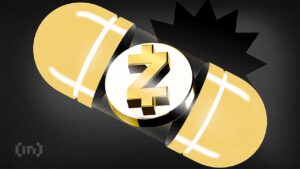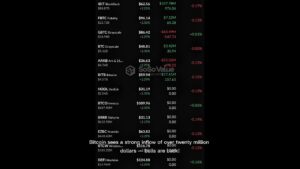Bear Trap or $3,500? Ethereum Analysts Cast Doubt on ETH price Recovery

Key takeaways:
Ether consolidated around $4,000 as the lack of futures demand and weak ETF flows suggest the absence of bullishness.
Declining Ethereum network fees and activity suggest lower onchain demand.
Analysts warn of a drop to $3,500 if the support at $4,000 is not reclaimed shortly.
Ether (ETH) has oscillated around $4,000 for the past two weeks, a consolidation period following its flash crash below $3,500 on Oct. 11.
Ether traders are now assessing the likelihood of further bullish momentum after the US Federal Reserve confirmed a 0.25% interest rate cut and the end of quantitative tightening.
Ether price lacks sustained bullish sentiment
Ether futures are currently trading at a 5% premium relative to standard ETH spot markets, reflecting low demand from buyers using leverage.
Related: Early Ethereum whales stirring? Data shows old Ether is moving
In neutral market conditions, futures premiums typically range between 5% and 10% to account for the longer settlement period. More concerningly, even the recent recovery to $4,250 did not restore sustained bullish sentiment among traders.
The bearish trend in Ether futures coincided with outflows from US-based Ethereum spot exchange-traded funds (ETFs) that have dominated since mid-October.
The $380 million in ETF net inflows on Monday and Tuesday did little to generate any bullish momentum, leaving traders questioning whether a $10,000 ETH price target remains realistic for this cycle.
Ether’s inability to stay above $4,000 can also be attributed to the decline in Ethereum network fees, although this issue has affected the entire cryptocurrency market.
Ethereum chain fees totaled $5 million over the past seven days, representing a 16% decrease from the previous week. By comparison, fees on BNB Chain dropped 30%, and Tron experienced a 16% decline. The number of active addresses on Ethereum’s base layer dropped by 4% over the same period, while Tron saw an over 100% increase.
A “classic bear trap” or is ETH price going lower?
Data from Cointelegraph Markets Pro and TradingView show that the Ether price is printing a third consecutive red candlestick on the daily chart.
Several attempts at recovery have been rejected at the $4,000 resistance level, prompting traders to question whether Ether’s upside is over or if the altcoin is undergoing a technical correction.
“$ETH has lost its $4,000 support level again,” said analyst Ted Pillows in an X post on Thursday.
Pillows pointed out that despite the “Fed’s 0.25% rate cut, QT ending in a month, and US-China trade talks” all happening within the past 24 hours, Ethereum remains down.
An accompanying chart shows that the next line of defense for ETH was $3,800, and losing it would trigger another sell-off, first toward the $3,500-$3,700 demand zone and later to the $3,354 low reached on Aug. 3.
On the upside, reclaiming $4,000 would bolster the bulls to focus on the barriers at $4,200 and $4,500, before returning to all-time highs above $5,000.
Ted Pillows added:
“Either this is a classic bear trap, or the crypto market is going way lower.”
Fellow analyst FibonacciTrading said a “dip toward $3,300 would still count as a healthy pullback within the uptrend, held by the EMA cloud,” as shown in the weekly chart below.
“It will be a real show of strength if the bulls can defend support here and set up for the next attack on resistance.”
For pseudonymous analyst Cactus, Ether’s upside remains on track with a “strong Q4 still on the cards” as long as bulls hold the $3,800-$4,200 support region.
As Cointelegraph reported, bulls must push the price above the 50-day SMA at $4,200 to signal strength and confirm the start of the next leg of the upward move.
This article does not contain investment advice or recommendations. Every investment and trading move involves risk, and readers should conduct their own research when making a decision.











